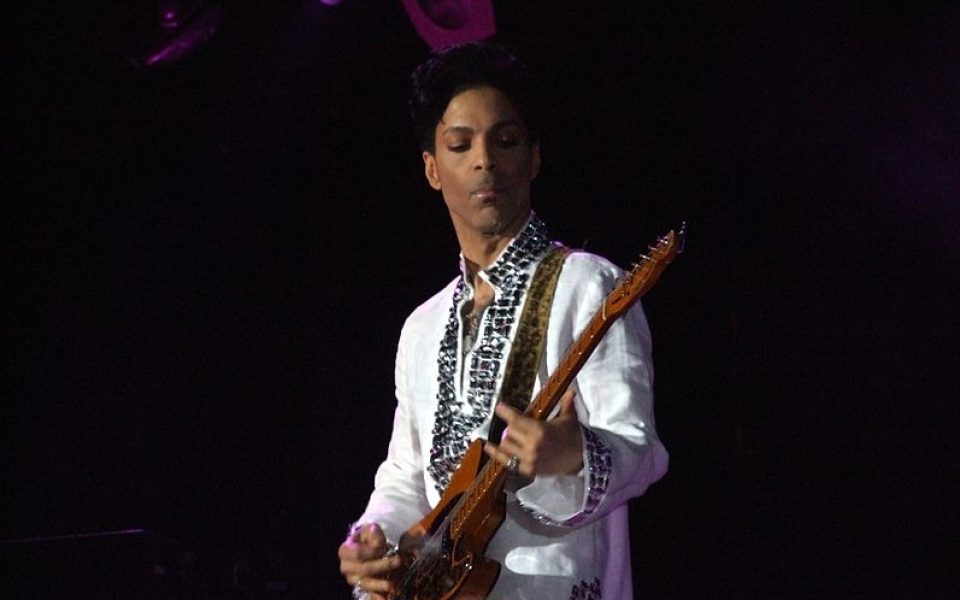- Matthew Arnold
News of the death of Prince Rogers Nelson stunned me when I heard it on National Public Radio’s “Here & Now” last week, but so many people have articulated why this incredible artist’s passing was a collective blow much better than I could. The first who comes to mind is my college friend, Matthew Arnold, riffing on a vox.com article entitled “Prince gave black kids permission to be weirdos.” Arnold, who grew up in southeastern Wisconsin, wrote, “Yep, white kids, too. And even more than Bowie, he gave American boys permission to be ways other than hyper-masculine, emotionally repressed little dickbots at a time when the gender and sex panic of the Reagan years was at a fever pitch. “I remember being out in the schoolyard back at Southport Elementary, maybe 5th grade, and crew-cutted would-be alpha male spat accusingly, ‘I bet you like Prince.’ The implicit homophobia of this statement was plain. As I remember it, I considered my allegiances for a split second, weighed the associations — blackness, sexual ambiguity, gender fluidity and, well, sex personified, versus belonging to a dumb sexless tribe I’d never really belong to anyway — and answered: ‘Yeah. I like Prince.’”
- Richard Kim
Richard Kim, the executive editor at the Nation, nailed the subversive role Prince played in the culturally repressed 1980s in a four-paragraph reflection published on the day of the artist’s death. “If you were a kid growing in the ’80s — maybe let’s say you’re gay too — this is what you first learned about sex: It will kill you,” Kim writes. “You don’t have sex yet; you don’t even really know what it is, but you know that it is lethal. That somehow it leads to the men with the skeletal bodies and blotchy marks on their skin that you see on the television, the men who don’t look at the camera and are alone.” Kim concludes with this immortal line: “On one side of your childhood, there is Reagan and AIDS and nuclear war and the yelling Christians. And on the other side, there is Prince.
- Melissa Harris-Perry
Not everyone got Prince at first, and it’s refreshing that Melissa Harris-Perry admits it, and represents those of us, like me, who were late to the party. Harris-Perry — the new editor-at-large at Elle.com, Maya Angelou Presidential Chair at Wake Forest University and Winston-Salem resident — writes about finally getting “the bravado, the freedom, the woundedness, the eroticism, the dualities, the unmatched genius” of Prince’s artistic vision. “I started to hear everything I missed when I listened with my most uncompromisingly categorical mind. I heard how the music was neither funk, nor soul, nor jazz, nor rock, but all of them. That is exactly the kind of public voice I wanted to have. I wanted to bring social science, and literature, and humor, and ordinary wisdom, and black-girl vernacular together in one unexpected creative fusion that felt good if you could let go and be inside it.”
- Me
My parents’ reaction against Prince is a big part of my appreciation of him. I remember when they took me to see the Grateful Dead in Cincinnati in 1985. Witnessing affluent college students in brand-new Toyota pickups rolling into the park, my dad hilariously asked, “What are these — Prince fans?” My dad was wise and kind, but this may have been the most bone-headed thing he ever uttered. As a bearded child of the Summer of Love and a farmer who fixed up second-hand cars, he was concerned about a new breed of Deadhead that might be more attracted to flash and trendiness. Yes, Prince was flashy, but his fans were far more working-class than the permanent vacationers who took the summers off to follow the Dead. And if you wanted to have a throwdown to determine who had the most artistic integrity in 1985, it would not have been grizzled diehards of the hippie generation who were singing, “We will get by/ We will survive.”
- Charlie Murphy
Around the same time my dad completely missed the boat on Prince, Charlie Murphy — older brother of comedian Eddie Murphy — misjudged the purple one in a different way. The 2004 skit from “Chappelle’s Show,” with Murphy playing himself and Dave Chappelle portraying Prince is hilarious, and you need to watch it on YouTube to fully appreciate the voice inflections, facial expressions and body language. Two takeaways: Prince could play more than music, and proved the gracious host with a pancake breakfast. I’ll leave you with this reflection from Murphy: “I kinda learned something that day. Don’t ever judge a book by its cover. This cat can ball, man! He was crossing — crossed me up. He was getting rebounds like Charles Barkley.”
Join the First Amendment Society, a membership that goes directly to funding TCB‘s newsroom.
We believe that reporting can save the world.
The TCB First Amendment Society recognizes the vital role of a free, unfettered press with a bundling of local experiences designed to build community, and unique engagements with our newsroom that will help you understand, and shape, local journalism’s critical role in uplifting the people in our cities.
All revenue goes directly into the newsroom as reporters’ salaries and freelance commissions.


Leave a Reply